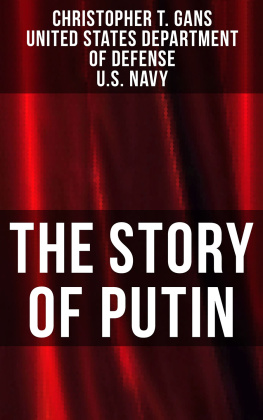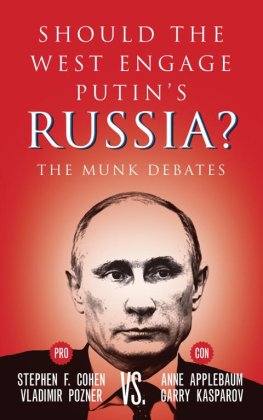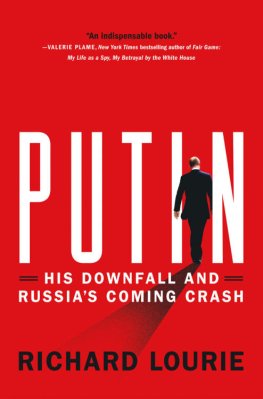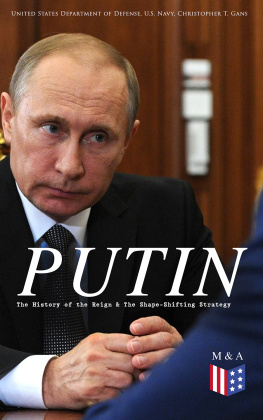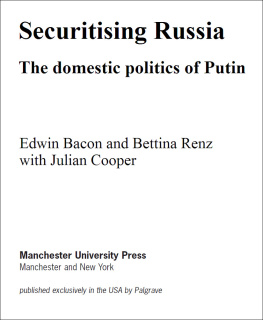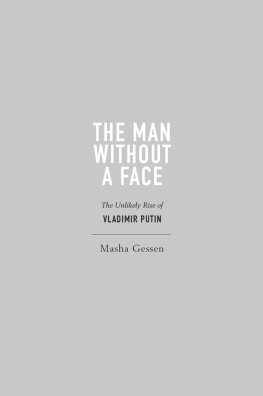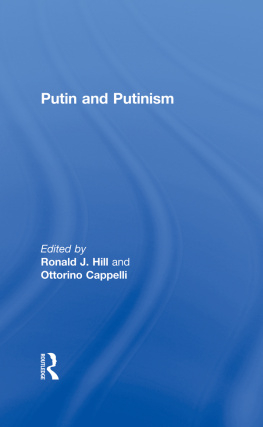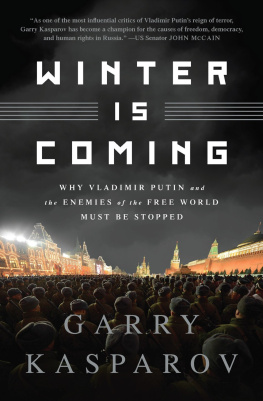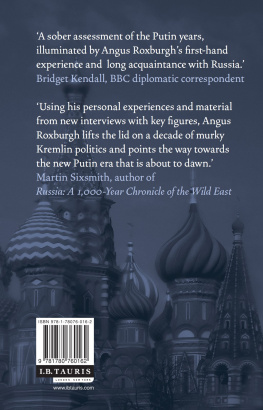I. PUTINIST AUTHORITARIANISM AND ANTI-AMERICANISM: AN INTRODUCTION
A. PURPOSE
Is Vladimir Putin nuts? Has he drunk too much Russian vodka? Does he truly hate America? Do the people he presides over truly hate America? This thesis analyzes modern anti-Americanism in Russia during the era of Vladimir Putin. The objective is to evaluate Vladimir Putins anti-Americanism and the domestic political implications of Putinist anti-Americanism within Russia.
The central questions that this thesis strives to answer are: (1) What are the roots of Vladimir Putins anti-Americanism as well as the anti-American tendencies of segments of the Russian populace from the 1990s to present day? (2) What is the relationship between the progression of Putins anti-Americanism and the anti-American sympathies of the Russian public? and, (3) What are the potential domestic political benefits garnered by Putins hybrid authoritarian regime as a result of his anti-American rhetoric and policy positions?
This thesis will show that Vladimir Putin has maintained an anti-American attitude rooted in his youth and early adulthood in the Soviet Union. Vladimir Putin developed an anti-American cognitive pre-disposition. As president, Putins anti-American outward volume fluctuated, but his intrinsic anti-American attitude remained. Vladimir Putin has been, is, and will be inherently anti-American. The hybrid democratic-authoritarian nature of Putins state necessitates his usage of authoritarian mechanisms to manipulate democratic practices. A unified opposition movement of the public and disaffected elites could pose a serious challenge to regime. This thesis will also show that Anti-Americanism is employed by Putin to inhibit such a union, keeping one or both segments loyal, or at least ambivalent. Anti-Americanism allows Putin to demonstrate democratic political conformity while simultaneously providing authoritarian political distraction. He represents the sentiments of the people who elected him by enunciating their beliefs, like anti-Americanism, even though that sentiment has been manipulated by him. Anti-Americanism also distracts the two pillar segments of society from forming common by helping to hide the underlying problems associated with Putins regime.
This thesis shall also demonstrate that the level of the Russian publics hostility toward America tends to increase or decrease in conjunction with an increasing or decreasing level of anti-American vehemence displayed by Putins Kremlin. Putin can sway his nations moods as he deems prudent. A perpetual relationship developed between Vladimir Putins anti-Americanism and the Russian populaces anti-Americanism, to include the public and elite sectors. Putins anti-Americanism, by means of his authoritarian mechanisms, sufficiently arouses the publics anti-Americanism, thereby allowing Putin and the political elites to feed off of that public temperament. A positive feedback relationship between Putin and his polity has developed, and the state machine powers that loop, all for the political benefit of Putin.
B. IMPORTANCE
A roller-coaster metaphor could easily be used to describe ongoing Russian-American relations on the global scene. Since the disintegration of the Soviet Union, relations between the surviving superpower, the United States, and the dominant Soviet successor state, the Russian Federation, have fluctuated wildly between open friendship, cold-war like intransigence, and anything in between. Anti-American rhetoric and policy actions have emanated from the Kremlin for decades, but hostile words and quarrelsome policies cannot force the United States into a standoffish position toward Russia. Under the leadership of Vladimir Putin, Russias continued vital importance on the geostrategic scene need only be demonstrated by its actions. Such actions include Putins baptism of fire in the Chechen Caucasus crisis upon ascending to the presidency in 1999, a revitalized Russian economic might hinged on mineral resources, an invasion of Georgia in 2008, their bilateral relations with several of the most potentially de-stabilizing regimes like those in Syria and Iran, and their permanent leverage within the United Nations Security Council. America must interact with Russia one way or another in this ever-shrinking world. Understanding the nature and impetuses of Russian/Putinist anti-Americanism could go a long way in aiding American policy-makers perception of just why Putin and Russia do what they do.
As the USSR dissolved, Boris Yeltsin took the reins of the Russian Federation, the largest country on the globe, and the most powerful of the post-Soviet successor states. Many in the West harbored dreams that Russia would transform into a democracy on the Western model and adopt foreign policies compatible with the current Western democratic states. When Putin came to the forefront in 1999, many hoped he, too, would continue down a path toward liberalization; it was not to be. Putin has steered the Russian political systems development closer toward an authoritarian model, but not a total one; Russia has become what many in the broader literature refer to as a hybrid, or electoral authoritarian, or competitive authoritarian regime.
Putin must operate in a hybrid authoritarian political system in which actors within the state maintain degrees of political leverage over their government and leader. An understanding of such a system, therefore, shall be necessary to gauge any domestic political implications and potential benefits of Putins anti-Americanism. By better understanding Putins political situation within his state and the potential political benefits accrued by Putin for anti-American rhetoric and policy, Western entities might be better able to interact with Putin rather than discounting his actions as only the whims of a Russian strong-man.
Nikolai Petrov, Masha Lipman, and Henry Hale, Overmanaged Democracy in Russia: Governance Implications of Hybrid Regimes, Carnegie Papers, no 106 (February 2010): 1; Grigorii Golosov, The Regional Roots of Electoral Authoritarianism in Russia, Europe-Asia Studies 63, no. 4 (June 2011): 623; Timothy Colton and Henry Hale, The Putin Vote: Presidential Electorates in a Hybrid Regime, Slavic Review 68, no. 3 (Fall 2009): 503.
Larry Diamond, The Democratic Rollback: The Resurgence of the Predatory State, in Essential Readings in Comparative Politics, 3rd ed., eds Patrick ONeil and Ronald Rogowski (New York: W. W. Norton and Company, 2010), 235.
C. HYPOTHESIS AND THEORY
One major issue investigated in this thesis is the connection between Vladimir Putins anti-Americanism and the anti-Americanism of the Russian population. That population includes the general public and Putinist elites. The thesis shall also attempt to gauge the domestic political benefits garnered by Putins anti-Americanism within the authoritarian system that he has created.
Peter Katzenstein and Robert Keohane define anti-Americanism as a psychological tendency to hold negative views of the United States and of American society in generalan attitude. Anti-Americanism, therefore, cannot be reduced to an isolated incident of criticism or opposition to a single U.S. policy or action. An extended pattern of animosity in rhetoric and actions must be observable.

